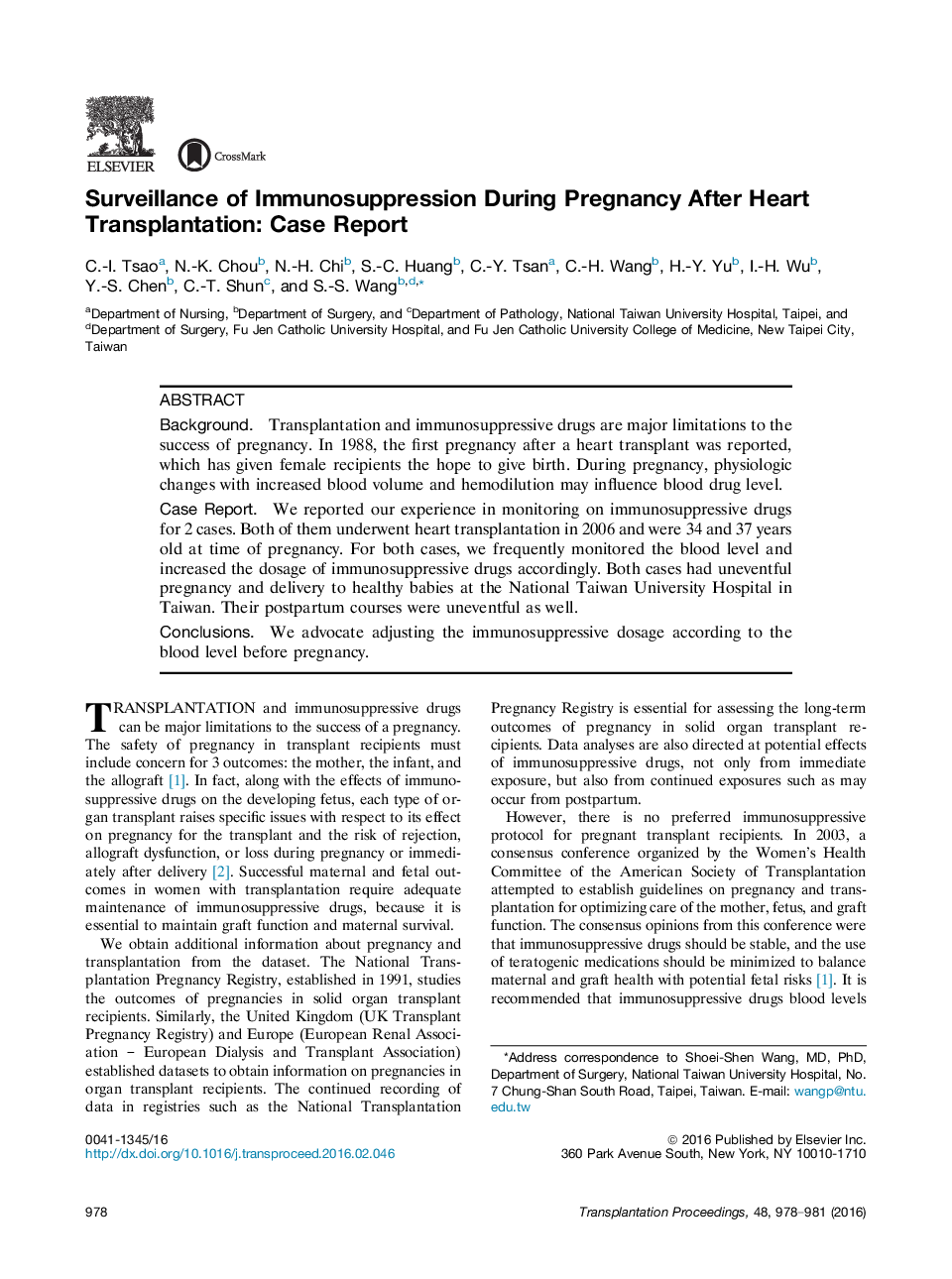| Article ID | Journal | Published Year | Pages | File Type |
|---|---|---|---|---|
| 6246488 | Transplantation Proceedings | 2016 | 4 Pages |
â¢There is no preferred immunosuppressive protocol for pregnant transplant recipients.â¢Adjusting the immunosuppressive dosage according to the blood level before pregnancy is recommended.â¢Even though blood level were lower than the level before pregnancy, the heart status remained stable with good heart contractility.
BackgroundTransplantation and immunosuppressive drugs are major limitations to the success of pregnancy. In 1988, the first pregnancy after a heart transplant was reported, which has given female recipients the hope to give birth. During pregnancy, physiologic changes with increased blood volume and hemodilution may influence blood drug level.Case ReportWe reported our experience in monitoring on immunosuppressive drugs for 2 cases. Both of them underwent heart transplantation in 2006 and were 34 and 37 years old at time of pregnancy. For both cases, we frequently monitored the blood level and increased the dosage of immunosuppressive drugs accordingly. Both cases had uneventful pregnancy and delivery to healthy babies at the National Taiwan University Hospital in Taiwan. Their postpartum courses were uneventful as well.ConclusionsWe advocate adjusting the immunosuppressive dosage according to the blood level before pregnancy.
